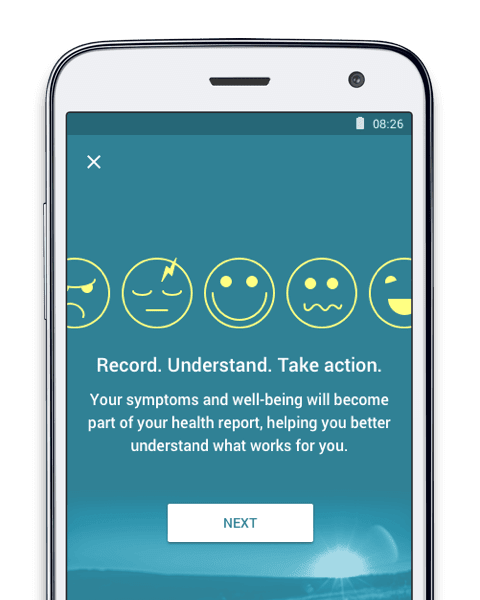These are some of the best blogs written by people living with bipolar disorder. Given how bipolar disorder is often described as a deeply isolating conditions, the Internet’s capability of bringing people from all over the world together can be invaluable. Blogs are one of the most prominent ways people can connect online and these ones stand out when it comes to living with bipolar disorder.
Find out which Bipolar Disorder blogs are perfect for:
- Real Life
- Advocacy
- Motivation
Top Bipolar Blogs for Real Life
These bloggers share a glimpse into their lives with bipolar disorder. Although each blog is shaped by the personality and experiences of its author, many people living with bipolar disorder will be able to relate to the topics discussed.
Bird Flight
When the author of Bird Flight, writing under the pseudonym updownflight, started the blog a couple of years ago, she stated that it would not strictly be a bipolar blog. “Bipolar disorder is not my whole life,” she wrote, a sentiment with which anyone living with the condition would heartily agree.
She has remained true to those words, writing about subjects ranging from diet and fitness to her love of nature and travel. The latter is notably influenced by the Czech Republic, the birthplace of her husband and the country in which they were wed.
While the topics of bipolar disorder and mental health do not define updownflight or her blog, nor are they ones she avoids. Indeed, she is candid about life with the condition and open about the ups and down.
Regardless of the matter at hand, updownflight is a skilled writer and adept at conveying her emotions, which helps make Bird Flight is a compelling blog.
Pretending To Be What We Are
Steve Comer has written his blog, Pretending to Be What We Are, and hosted a podcast, Pretending to Amuse, since 2015.
Like many of the blogs listed here, Steve’s blog is not solely dedicated to life with bipolar disorder, with which he was diagnosed at the age of 17, but is influenced by the effect it has had on his life.
One of the stand-out aspects of Steve’s writing is the level of creativity he injects into it and how this allows him to express himself. He regularly drops analogies into his writing that, while seemingly simple, manage to convey his ideas, thoughts, and feelings perfectly.
Aside from the depth of Steve’s writing, another strength of his blog lies in the diversity of the topics and the ease of finding specific ones should you so wish. He also compiles any resources that may be useful for his readers.
Other posts you may be interested in on the MyTherapy blog:
Suddenly Bipolar
It is not unusual for people to be diagnosed with bipolar disorder well into adulthood, even if signs and symptoms have long-existed.
While a diagnosis can come as a relief and explain experiences of years gone by, it is usually also something of a shock and requires a significant adjustment in one’s life.
This scenario is encapsulated in the name of Deborah Matthew’s blog, Suddenly Bipolar.
She was diagnosed in her mid-30s, despite having her first depressive and manic episodes in her teenage years. Deborah began writing her blog soon after, in early 2011, as a way of sharing her recovery journey.
Deborah has blogged consistently since then, in doing so creating something of an open diary. She writes frankly about her emotional well-being, personal life, and treatment, such as electroconvulsive therapy.
What is clear from the numerous comments her posts attract, is that her experiences strike a chord with many people living with bipolar disorder and her writing encapsulates emotions with which many people are able to relate.
Bipolar Hot Mess
Christina Huff describes her ‘pre-crash’ life as “crazed and dramatic,” while her ‘post-crash’ life is the epitome of the term hot mess.
It is from this phrase that her blog derives its name. The crash Christina refers to occurred in January 2012, six years after her diagnosis of bipolar disorder, with her personal and professional life shattered.
Prior to that, the blog she started in 2008 was called Pocket Christi. After its transformation into Bipolar Hot Mess, Christina’s journal of her recovery soon gained a large following. It has continued to grow ever since, helping create something of a community both on the blog and social media.
Christina continues to blog in an open, engaging, and emotive manner, often sprinkled with song lyrics and lines of poetry.
Top Bipolar Blogs for Advocacy
All bloggers and people who speak openly about mental illness can be considered advocates. These bloggers go a step further in their efforts to educate and inform people about bipolar disorder, helping tackle the stigma surrounding the condition and aiming to make life easier for every person living with the condition.
bipolar burble
Natasha Tracy was diagnosed with bipolar disorder when she was 20 years old. Since then, her award-winning writing and speaking have been featured on the likes of the Huffington Post, Healthline, and across the pond in one of Britain’s biggest newspapers, The Daily Mail.
In addition to being featured around the web, Natasha has written her blog, bipolar burble, for over a decade. Over the years, she has written extensively about her own life, treatment options, practical tips, and an endless number of other topics. Among them is her own journey towards becoming a patient advocate – a title that, by her own admission, she never intentionally adopted. Nonetheless, through her writing and speaking, that is what she has surely become.
The quality and openness of Natasha’s writing are reflected in the fact that her book, Lost Marbles, has been so well-received since its publication in 2016.
Jennifer Marshall
Upon entering Jennifer Marshall’s website, the first words to grab your attention are ‘mental wellness speaker,’ splashed onto clips of a TEDx Talk she delivered in 2016, ten years after her diagnosis of type 1 bipolar disorder.
In that same year, her writing was featured in The Washington Post. Her piece was written after Carrie Fisher – one of the most vocal advocates for bipolar disorder – passed away. In it, Jennifer discussed the profound impact Fisher has on her own life and on the lives of countless people living with mental illnesses.
Jennifer’s own impact on the lives of people living with bipolar is significant; in 2014, following a successful crowdfunding campaign, she co-founded a nonprofit called This Is My Brave, which gives people a stage upon which to share their stories and experiences with mental health.
Although Jennifer is not a prolific blogger, her dedication to advocacy means her blog and social media channels are worth following.
Bipolar Happens
If you have ever spent time reading up about bipolar disorder, it is likely you have come across Julie A. Fast’s writing.
Julie’s books on bipolar disorder have been written not only to offer wisdom to people living with the condition, but to their partners and loved ones as well. They have sold in their hundreds of thousands.
Julie was diagnosed with bipolar in 1995 aged 31, although the symptoms had been present for many years before that. She has since become a respected speaker and expert on mental health, while her writing has been published across the web.
Her blog, Bipolar Happens, has been going since 2007 and now has a remarkable catalog featuring over 200 pages worth of posts. It is indicative of Julie’s tireless effort to advocate for people living with bipolar disorder, which shows no sign of abating in the near future.
Bipolar Bantid
Michelle Clark, who was diagnosed with bipolar disorder in her teenage years, has expressed in her writing the frustrations of being a patient advocate and the difficulty in getting your voice heard.
Nonetheless, her desire to improve the lives of people living with mental illnesses run to the very heart of her blog.
Michelle gives guest bloggers an opportunity to share their stories, discusses her own life, and encourages everyone to do their part in advocating. She also runs an advocacy group and page on Facebook that have a combined >45,000 members.
While Michelle may feel frustration in getting her voice heard by the likes of legislators and Members of Congress, her continued effort helps gives other a voice and, little-by-little, chip away at the stigma surrounding mental illness.
Top Bipolar Blogs for Motivation
These bloggers write with infectious positivity and offer practical advice, helping support others living with bipolar disorder.
Be Ur Own Light
The tagline Eleanor Segall uses for her blog, Be Ur Own Light, succinctly captures the ethos of her writing:
“To be a star you must shine your own light. The darkest nights have the prettiest constellations…”
Eleanor’s own ‘darkest night’ may have occurred in 2014 when she was hospitalized with an episode of severe mania. She began her blog a couple of years later and has continued to write about her ongoing recovery in a manner that is upbeat, but that does not marginalize the realities and difficulties posed by both bipolar disorder and anxiety disorder.
Eleanor’s own writing on the blog is complemented by a diverse range of guest posts.
Aside from her blog, Eleanor came up with a Twitter hashtag, #MyDepressionMeans, that caught like wildfire and encouraged hundreds of people to share their own perspective on mental illness.
Halfway2Hannah
Hannah Blum started her blog in 2016 as a way of opening up about her life with bipolar disorder, having been diagnosed six years earlier.
Her photo-laden blog is, in her own words, “a platform to talk about mental health unapologetically.”
Halfway2Hannah is not, like many blogs, a diary of its author’s life. While Hannah is not afraid to discuss personal matters – such as receiving her diagnosis – she is more inclined to call on her experiences to provide practical tips and advice.
She also welcomes guest authors to share words of wisdom, as well as compiling lists of quotes, books, social media accounts, and any other resources she believes will be useful.
Take a look at some of the other posts on the MyTherapy blog:



